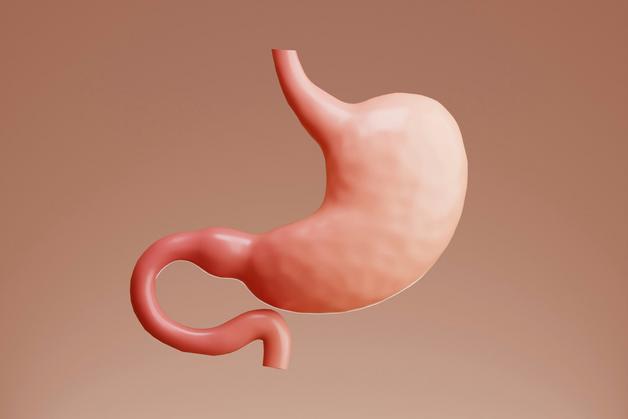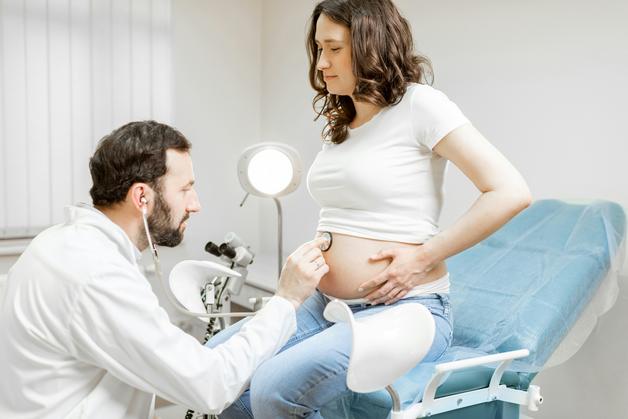Imagine a day disrupted by unexpected digestive turmoil. The clock ticks, your toddler asks for juice, and suddenly, a wave of urgency sends you seeking the nearest bathroom. Diarrhea during pregnancy is a concern that might catch parents off guard, bringing anxiety and a flurry of questions: Is it common? Does it pose risks? Does it signal something serious for my baby or my own health? Parents quite often juggle enough – nausea, fatigue, appointments – yet digestive upsets like diarrhea add an extra layer of unpredictability to daily life. From understanding the difference between harmless changes and red flags, to deciphering the maze of potential causes (is it that iron supplement, or just stress?), knowing what to watch for can provide real peace of mind. Here, you’ll find answers, medical insight, practical advice, and support for navigating this often-overlooked aspect of pregnancy.
Recognizing Diarrhea During Pregnancy: What Sets It Apart?
In clinical terms, diarrhea during pregnancy means passing three or more loose, watery stools within a 24-hour period. Unlike pregnancy constipation, which plagues many, diarrhea brings the opposite dilemma: rapid, urgent bowel movements, often with a sense of loss of control. The digestive tract, sensitive and constantly adjusting in pregnancy, may suddenly speed up, propelled by hormonal fluctuations, dietary shifts, or a less obvious culprit.
Classic symptoms to watch for:
- Sudden increase in stool frequency and liquidity
- Urgent trips to the bathroom that can’t be delayed
- Abdominal pain or spasms, sometimes diffuse, sometimes crampy
- Noticeable bloating—enough to stretch the already expanding belly
- Nausea, occasionally with mild chills
- Early dehydration warning signs: persistent thirst, dry mouth, and unusually dark urine
Sometimes, the picture gets more complicated: mucus in the stool, traces of blood, fever—these are red flags not to ignore.
Why does this matter so much? For many, digestive patterns fluctuate in pregnancy. Yet, persistent diarrhea during pregnancy stands out—particularly when it lasts more than 48 hours or is associated with systemic illness.
Triggers and Causes: Why Does Diarrhea Strike During Pregnancy?
Navigating Hormonal Currents
Pregnancy is awash with hormonal surges. Progesterone, the notorious “relaxing” hormone, often slows everything down (hence the constipation). But as pregnancy evolves, surges in prostaglandins (powerful chemical messengers) can relax not only the uterus in late stages but also the intestinal muscles. That’s why diarrhea during pregnancy sometimes emerges both early on and right before labor commences. It’s a delicate equilibrium—a flip of the hormonal switch can change digestive speed almost overnight.
Dietary Overload and New Sensitivities
Picture this: after months of bland crackers and sips of water, a newfound energy prompts you to add fiber, greens, maybe a tropical fruit smoothie, into the prenatal diet. Even beneficial changes can unsettle the gut. Prenatal vitamins, especially iron preparations, can sometimes act like a double-edged sword. While iron is famous for causing constipation, certain formulations, or other micronutrients, may instead shock the digestive tract, provoking diarrhea. For some, a new intolerance is uncovered—perhaps lactose suddenly becomes problematic, sparking digestive upset that didn’t exist pre-pregnancy.
Infections and Foodborne Illnesses Lurk
Pregnancy imposes subtle shifts on the immune system. An immune system that works differently makes future parents more susceptible to gastrointestinal viruses (think norovirus, rotavirus), bacterial infections (e.g., Salmonella, E. coli), or rare but notorious invaders like Listeria. Sometimes a single poorly washed salad, undercooked egg, or unpasteurized cheese can upset the balance. Fast, watery stools, possibly with vomiting or fever, may point to an infection—an immediate reason to take pause.
Stress, The Sensitive Gut, and Underlying Digestive Disorders
Parenthood and pregnancy are exciting, but nobody denies the presence of stress and emotional turbulence. Anxiety, worry about the future, even routine disruption can ripple through the digestive system. Those with a history of irritable bowel syndrome (IBS) may find that pregnancy amplifies the connection between mind and gut, bringing on looseness or urgency. For others, pre-existing conditions—from celiac disease to inflammatory bowel disorders—can flare up, leading to recurrent diarrhea during pregnancy.
Medication Traps and Traveler’s Diarrhea
A new prescription—especially antibiotics—may alter the fragile ecosystem of the intestines, sweeping away beneficial bacteria and opening the door to unwelcome guests. Even seemingly innocuous over-the-counter treatments might have gastrointestinal side effects during pregnancy. Travel, whether a short trip or an exotic destination, introduces new foods and sometimes contaminated water, dramatically increasing the risk of traveler’s diarrhea—a challenge not unique to parents, but with particular implications when expecting.
The Looming Risk: Dehydration and Its Consequences
Ask any healthcare provider, and a recurring theme echoes: dehydration. The greatest threat posed by diarrhea during pregnancy isn’t always the act itself, but what swiftly follows when fluid loss outpaces replacement. The body, already distributing its resources to nurture a growing baby, is less forgiving when water and electrolytes go missing.
The warning signs may feel subtle at first: a dry tongue, scanty urine, dizziness when standing, even an uncharacteristic bout of fatigue. Persistent dehydration shifts into more dangerous territory. Disturbed electrolyte balance—especially drops in potassium or sodium—can lead to faintness, muscle spasms, and cardiac rhythm issues.
For the developing fetus, most mild bouts of diarrhea during pregnancy don’t spell danger. However, severe or prolonged maternal dehydration can compromise placental blood flow. Only rare scenarios—like unchecked foodborne illnesses—directly threaten fetal well-being, potentially precipitating preterm labor or affecting growth if maternal nutrition is undermined.
When Diarrhea During Pregnancy Signals Labor or Something More Serious
A fascinating paradox: late pregnancy often witnesses an uptick in bowel looseness—nature’s way of “clearing the decks” before labor takes over. Prostaglandin release softens both the cervix and the bowel muscle. For many, faster transit and more frequent stools are simply part of the body’s labor countdown.
However, diarrhea associated with:
- Regular abdominal contractions
- Abnormal vaginal discharge (blood, mucus, or watery leakage)
- Persistent lower belly pain
—particularly before 37 weeks—requires prompt assessment. It may point toward preterm labor, where early intervention can make all the difference.
So, how long is too long? Any episode of diarrhea persisting beyond 48 hours, especially if joined by fever, blood, severe pain, or signs of dehydration, demands swift medical input.
Safe Management: Hydration, Diet, and Home Strategies
When the digestive system rebels, what restores balance? The answer: simplicity and patience. For most, the management of diarrhea during pregnancy starts at home.
Restore and Maintain Fluids First
Hydration is king—sip water throughout the day, never waiting for thirst to build. Electrolyte solutions (think oral rehydration powders) can step in when vomiting joins the mix or when diarrhea refuses to quit. Avoid caffeinated, fizzy, or sugary drinks; they may worsen dehydration.
Gentle Foods for a Sensitive Gut
- White rice
- Bananas (ripe, soft)
- Applesauce or cooked apples
- Toast or soft white bread
- Steamed carrots, boiled potatoes
- Clear, salted broths
Steer clear of:
- Raw produce and unpasteurized dairy
- Spicy, greasy, or highly seasoned dishes
- High-fiber cereals
- Artificial sweeteners (especially sorbitol and xylitol)
Introducing foods slowly, even in small bites, is often the safest approach.
Hygiene and Prevention
Frequent, deliberate handwashing after every bathroom visit and before eating becomes a powerful ally. Cooking foods thoroughly, avoiding undercooked meats and questionable dairy, and selecting bottled or freshly boiled water when abroad act as primary shields against infections.
Probiotics: Friend or Foe?
Recent research supports carefully chosen probiotics in select cases, especially after antibiotic-associated diarrhea. Always seek a practitioner’s advice before starting any supplement—over-the-counter remedies like loperamide or herbal concoctions are not routinely safe during pregnancy.
The Power of Rest
Physical rest, minimization of stressors, and gradual reintroduction of routine once recovery begins cannot be overstated. Sometimes, healing needs only a day or two of gentleness with your own body.
When to Seek Help: Warning Signs Not to Miss
- Diarrhea during pregnancy lasting beyond 48 hours
- High fever (above 102°F/39°C)
- Blood or mucus in stool
- Severe or continuous abdominal pain
- Significant weight loss
- Noticeable drop in urination, intense thirst, or dizziness
- Regular contractions, vaginal bleeding or unusual discharge
- Less frequent or absent fetal movements
Seeking medical evaluation here isn’t about panic; it’s about timely action. Communication with a healthcare professional transforms anxiety into reassurance and swift care.
Prevention: Protecting Yourself and Your Baby
Vigilant Food Hygiene
Wash produce thoroughly, peel fruits when possible, ensure all proteins and eggs are cooked well, and bypass high-risk foods like deli meats and soft cheeses. Clean surfaces before preparing meals and opt for safe water sources, especially during travel.
Mindful Diet
Eat smaller, frequent meals and introduce new foods gradually. Limit high-sugar, high-fat, and raw-fiber foods until digestive calm prevails. The emphasis on a balanced diet supports both maternal well-being and fetal development, while gentle transitions ease the colon’s work.
Emotional Well-being and Routine
Recognize the impact of emotion on digestion. Routine, gentle exercise (prenatal yoga, walking), and stress-reduction techniques help maintain regularity both in mood and in bowel patterns.
Consistent Medical Partnership
Regular prenatal follow-up ensures any unusual digestive symptoms—whether fleeting or persistent—are addressed quickly, supporting a healthy pregnancy journey for both parents and baby.
Key Takeaways
- Diarrhea during pregnancy can appear unexpectedly at any stage; while often mild, persistent or severe forms merit vigilance
- Hydration is your best ally; sip fluids frequently to replace what is lost, and consider electrolyte solutions if needed
- Choose gentle, digestion-friendly foods—white rice, bananas, applesauce, broths—and pause on irritants like raw vegetables, dairy, high fiber, and spicy items
- Practice rigorous food and personal hygiene, especially when handling risks like travel or new dietary items
- Never hesitate to consult a medical professional if diarrhea persists, is severe, or if you notice red-flag symptoms: high fever, blood in stool, abdominal pain, signs of preterm labor, or diminished fetal movements
- Emotional balance matters; stress management, routine, and self-kindness can support both gut and overall well-being
- There is a wealth of trusted resources and medical professionals to support you throughout parenthood
For tailored guidance and free health questionnaires for children, you can explore the Heloa app. Reach out early and confidently—being an informed parent transforms uncertainty into empowerment, step by step.
Questions Parents Ask
Can diarrhea during pregnancy be a sign of miscarriage?
It’s understandable to feel concerned if digestive troubles appear in early pregnancy. While diarrhea alone is often linked to hormonal changes, stress, or dietary shifts, when it occurs alongside strong abdominal cramps or vaginal bleeding in the first trimester, it can, rarely, signal a risk of miscarriage. Rassurez-vous, diarrhea by itself does not usually indicate a miscarriage. However, if you experience several symptoms at once, don’t hesitate to reach out to your healthcare provider for reassurance and guidance.
Is diarrhea in the second or third trimester dangerous for my baby?
Pregnancy in the second and third trimesters can be accompanied by occasional digestive changes, including diarrhea. Most often, these episodes are mild and not dangerous. The key is to focus on good hydration and gentle nutrition, as dehydration is the main risk. In rare cases, especially when diarrhea is severe or prolonged, there could be a risk of reduced placental blood flow. This is why, if diarrhea persists or is joined by high fever, severe abdominal pain, or significant weakness, il convient de consulter rapidement un professionnel de santé.
What can I do at home if I have mild diarrhea during pregnancy?
Facing mild diarrhea can be inconvenient, but rassurez-vous, many parents find relief with simple, gentle steps at home. Try to drink small sips of water regularly and focus on bland foods like rice, bananas, or toast. It’s helpful to rest as much as possible and avoid foods or drinks that might irritate your stomach, such as very greasy meals or dairy if you feel sensitive. If symptoms are short-lived and you’re able to stay hydrated, il importe généralement de patienter un peu tout en surveillant les signes d’aggravation. If you have any concerns or if new symptoms appear, you can always reach out to your healthcare provider for reassurance.










